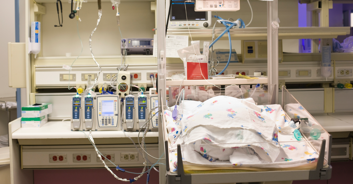In a high-profile case that's sparking debate across social media and dinner tables alike, a Melbourne man recently attempted to sue the Royal Women's Hospital for a staggering $1 billion.
Why? Anil Koppula, the man in question, claims that witnessing his wife's cesarean section in 2018 led to severe mental distress and the ultimate breakdown of his marriage.
According to court documents, Koppula insisted that the hospital "breached a duty of care" owed to him after he was "encouraged, or permitted, to observe the delivery" that involved seeing his wife's "internal organs and blood." The consequent emotional toll, he alleges, was so severe it led to a "psychotic illness" and marital collapse. Koppula, who represented himself in court, was seeking an unprecedented $1 billion in damages.
While the Royal Women's Hospital recognized its responsibility to provide a duty of care, it staunchly denied breaching it. Justice James Gorton eventually threw out the lawsuit earlier this week, terming it an "abuse of process," as reported by the Herald Sun.

Justice Gorton's ruling was based on the current law that does not allow for damages related to non-economic loss unless the injury is classified as a "significant injury." Koppula had undergone a medical examination, after which a panel determined that "'the degree of psychiatric impairment resulting from the injury to the claimant alleged in the claim does not satisfy the threshold level."
Although Koppula disagreed with the panel's decision, he chose not to request a review of their ruling. This prompted the hospital to file a request to have the legal proceedings dismissed.
For those unfamiliar, a C-section is a surgical procedure often employed when a vaginal delivery is deemed unsafe or not possible. The procedure involves making an incision in the mother's abdominal wall and uterus to deliver the baby. It's commonly performed under anesthesia. While most people handle the experience well, healthcare professionals acknowledge that some birthing partners may find watching the operation unsettling.
Karleen Lee, an RN supervisor at healthcare company Banner Health, offers advice for expectant fathers who might be present during a C-section. She notes that it's rare, but some dads might feel queasy during the process. "Remember to not jump up out of your seat too quickly and let the anesthesiologist or surgery team know if you are feeling a little faint," she says on the company's website. "They have ways of helping dads, whether through conversation as a distraction or with an ammonia inhalant or smelling salts to prevent fainting."
This case has brought to light intriguing questions about the responsibility of healthcare providers and how far that duty of care extends. While Koppula's billion-dollar lawsuit was eventually dismissed, it's sure to fuel discussions about what emotional and psychological support should be available for partners during the childbirth process.
Is this a one-off case, or might it set the stage for similar lawsuits in the future? Only time will tell. Until then, it's a subject matter that is sure to keep people talking.





.png_KAV2ka?tr=h-184)